DEVELOPMENTS
In Afghanistan, Women Step Up to Fill Need for Frontline Healthcare Workers
Feb 12, 2019
Communities across Afghanistan—especially the dispersed populations in rural areas—have long endured a lack of basic health services due to low numbers of trained health workers and chronic security issues. But this situation is improving. Today, a program to bolster women’s inclusion in Afghanistan’s mainstream economy is also serving to fill high-priority needs in maternal and infant care, vaccination, skilled nursing, and other health services.
The Promote: Women in the Economy (WIE) program is enjoying noteworthy acceptance in the health sector, both by local clinics and hospitals that need trained workers and young women wishing to train for and fill those jobs. Funded by the U.S. Agency for International Development and implemented by DAI, WIE has facilitated 8,000 internships and apprenticeships and assisted hundreds of women-friendly businesses across Afghanistan. Among WIE’s results:
-
Health internships and apprenticeships: Implemented by 24 job placement officers and managers across Afghanistan, the WIE Internship and Apprenticeship program’s network of 1,600 vetted employers provides safe working conditions for young women who are often entering the professional workplace for the first time. WIE has facilitated more than 1,700 internships and apprenticeships in the health sector alone.
-
Forward Together Scholarships: Of the 4,380 women earning these cost-share scholarships, 534 have completed or are enrolled in medical technology skills development courses, with 310 attaining full-time jobs and another 35 securing internships. WIE’s pre-vetted training providers teach courses in ultrasound, emergency obstetrics, pharmacy, mammography, and more than 10 other specialties.
“Traditional culture, security concerns, and social norms are factors that often bar women from entering the workplace—however, the situation is different in the healthcare industry,” said Dr. Hamid Shirzad, director of Global Innovation Consultancy Services, a WIE grantee for nursing and radiology training for women. “Female practitioners are needed to help female patients, especially in gynecology, obstetrics, and pediatric care … There is a huge demand for skilled female medical staff.”
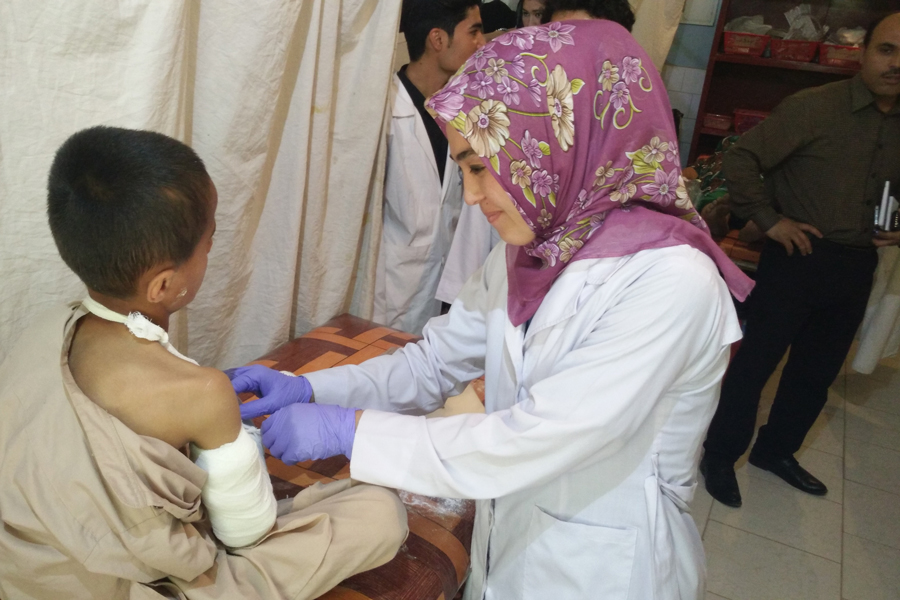
Giving Women a Chance to Excel
In Afghanistan as elsewhere, culture norms require that only women may provide healthcare to other females, especially during intimate circumstances such as pregnancy and childbirth. Yet these countries often present complex and challenging environments that restrict women’s access to training, leading to low numbers of midwives, nurses, and female community health workers, especially in rural locales. Hence, women and girls go untreated. In Afghanistan, this shortage has resulted in high rates of maternal, child, and infant mortality.
“We can fill crucial needs in community healthcare delivery by opening up these opportunities to young women,” said Chris LeGrand, President of DAI Global Health. “In northern Nigeria, for example, many families are willing to break with tradition and support their daughters going away to train in midwifery, nursing, and other skills, especially when they see the need for such workers in their own communities.”
In Afghanistan, socio-religious expectations and the poor quality of rural education have in many cases rendered girls unprepared to enter the health workforce. But these conditions are addressable, as WIE is demonstrating. A few examples:
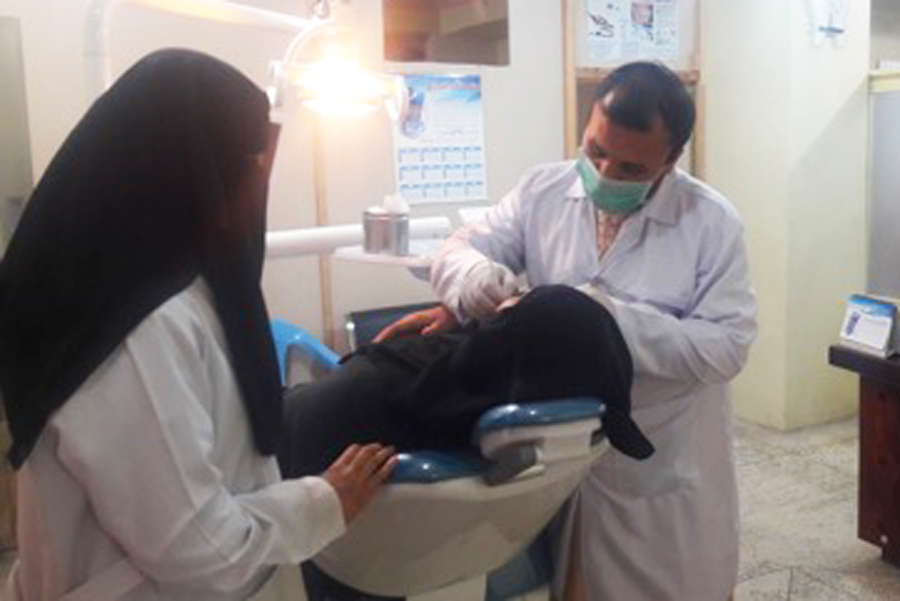
In Kandahar: First-Time Dental Visits
Due to cultural and safety concerns, women and girls in Kandahar province struggle to locate acceptable dental and healthcare. When WIE introduced a Basic Dentistry Training course, 13 women enrolled and 11 graduates found jobs, becoming among the first female dental practitioners in Kandahar. Laila became the first woman to work as a dental assistant in the Ahmadi Dental Clinic, prompting her employer to promote dental care for female patients. Since hiring Laila, the clinic’s roster of female patients has steadily increased.
“Before, we had too many issues in that female patients in need of care would cancel appointments,” says Dr. Sharifullah Sharafat, the clinic’s owner. “They were not comfortable to be in an examination room with a male dentist and no female assistant. With Laila, we can offer proper care for female patients in an environment that makes them comfortable.” Added Laila: “Now I have a job that is critical in helping women in my community get dental care, many of them for the very first time.”
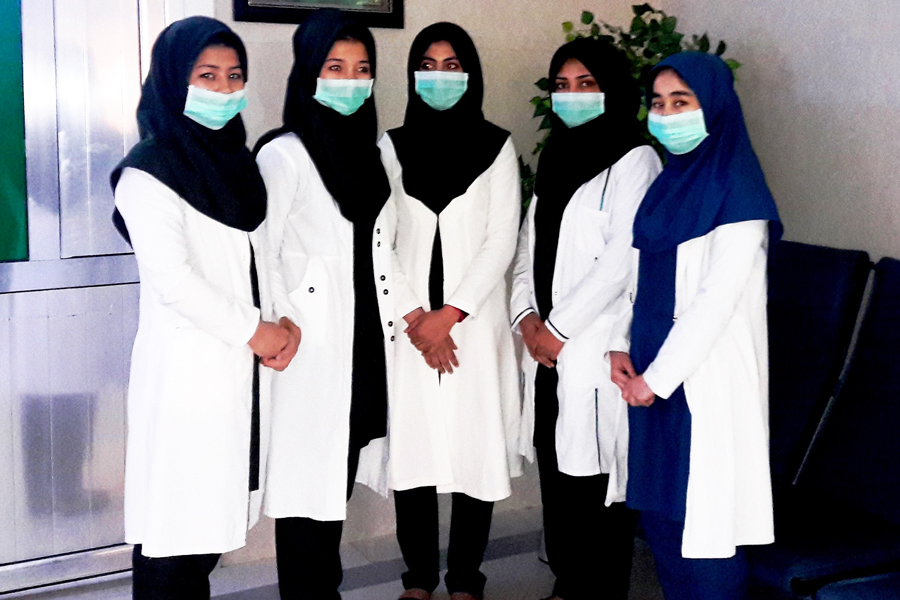
In Herat: A Thankful Hospital Chief
Loghnam Hakim Hospital was expanding from 70 to 100 beds and needed more trained health workers. The private hospital already employed 260 staff, including 140 women. Hospital manager Dr. Ejaz approached WIE and accepted 30 interns for on-the-job training positions as nurses, midwives, lab assistants, x-ray technicians, and administrative staff.
“The inclusion of women into the national healthcare system is vital for our country,” said Dr. Ejaz. “The WIE internship program was a lifesaver for us, and it provided a platform between us as an employer and new, inexperienced female recruits. The young women who came to us were well prepared for work, they had their family’s permission to work; most of them could even work night shifts, which in a hospital is critical. We invested in quality training for our interns, and it has paid off.”
Loghnam Hakim Hospital has since enjoyed a 10 percent increase in revenue, which is increasing day by day as the number of female patients increase. The hospital adopted more thorough and transparent personnel practices, improved the quality and variety of care for female patients, and further improved its local reputation.
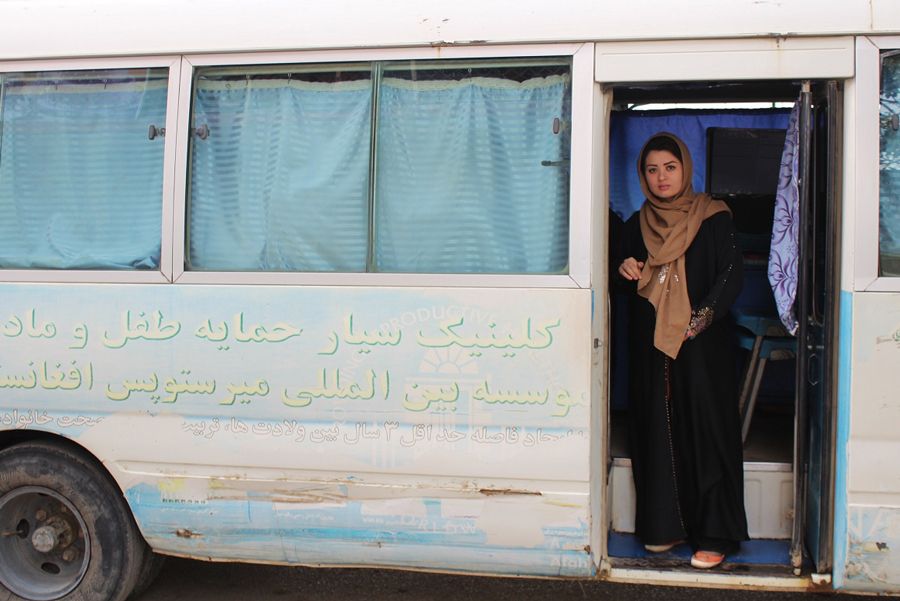
In Mazar-i-Sharif: A New Mobile Healthcare Clinic
Twenty-nine-year-old Nooria, a resident of Mazar-i-Sharif, had medical education but no work experience. After completing a WIE-facilitated ultrasound technology course, she was soon hired to run Mazar’s first-ever mobile health clinic. Sponsored by Marie Stopes International, the clinic is equipped with an ultrasound machine, medication, and other medical machinery. Nooria now examines 20 to 30 female patients daily.
“The WIE scholarship program helped me gain job-specific technical skills, which enabled me to get this job,” Nooria said. “I am now helping hundreds of women per week get healthcare services they need and that otherwise might not be available to them.”
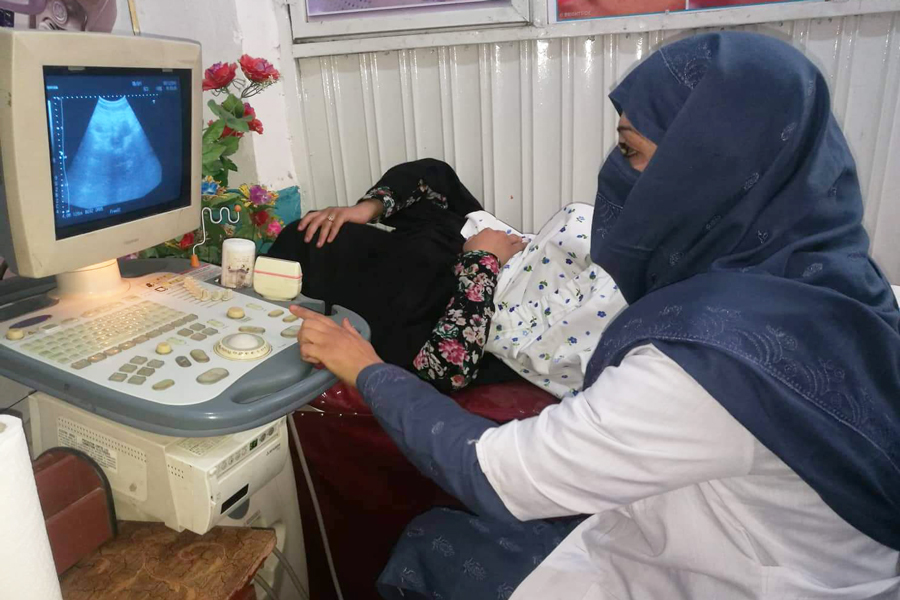
In Jalalabad: A Doctor Gets Her Chance
Dr. Arzoo’s family supported her wish to study medicine at a private university in Jalalabad, but upon graduation the 28-year-old was not qualified to operate the ultrasound machine, which is required in diagnostics.
Arzoo learned about a WIE-facilitated course in ultrasound technology, which she took for three months under a certified trainer. Upon completion, Arzoo struggled to find a job due to a lack of positions for women in government clinics, so she opened her own facility. She now sees female patients each day and earns as much as AFN 28,000 per month.
“I will never forget the assistance from WIE that allowed me to earn a living doing what I love and helping other women in my community have safe pregnancies and aftercare.”—Dr. Arzoo
Government Driving Health Reforms
WIE is also supporting the Afghanistan Medical Council (AMC) to enact licensing and registration procedures for doctors and dentists to ensure improved diagnosis and care. Funded by the Afghan government, the AMC will mandate high standards for professional conduct and medical ethics, and improve competency across registered medical practitioners, eventually to include midwifery, nursing, and other disciplines.
This more robust registration regime will enable women to better document their credentials, in turn leveling the playing field in Afghanistan’s healthcare industry. “In the last decade and a half, thousands of female midwives, doctors, and nurses have been trained, yet many public and private health facilities still lack qualified female staff,” said Dr. Shirzad. “This situation justifies the need for more quality training, investment, and standardized certification procedures for female practitioners.”
“Women and girls should not have to suffer medically because social barriers are preventing their treatment or preventing other women from becoming health workers,” added DAI’s Michelle Morgan, WIE’s Chief of Party. “Fortunately, the demand for women health workers is driving good participation in our program and supporting women’s inclusion in the economy and more broadly.”